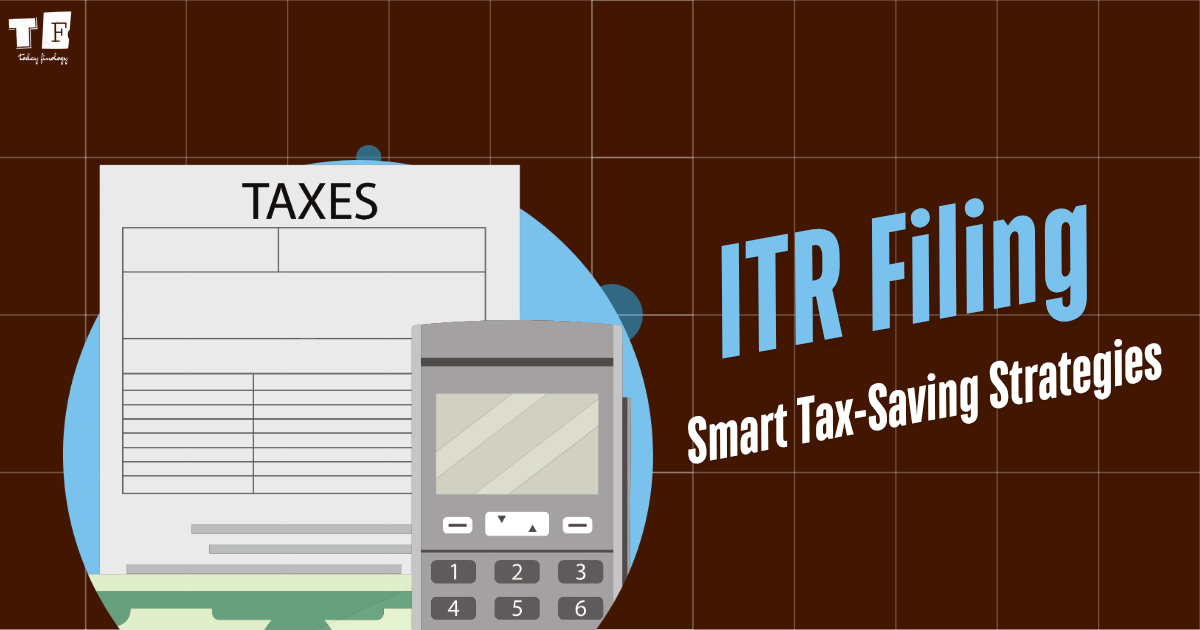ITR Filing: Pay Zero Tax on ₹16 Lakh Salary! Smart Tax-Saving Strategies
Filing Income Tax Returns (ITR) is a crucial financial task for salaried individuals. However, with thoughtful tax planning, you can legally reduce your tax liability to zero—even with an annual salary of ₹16 lakh. You can optimize your taxable income by utilizing salary benefits, tax exemptions, and investment options like the National Pension System (NPS). Let’s explore how you can achieve this step by step.
Understanding Your Salary Structure
Your salary consists of different components, some of which are taxable while others are exempt. The key to reducing your tax burden is structuring your salary wisely and taking full advantage of exemptions. Here are some key salary components that can help you save tax:
- House Rent Allowance (HRA) – Tax-free if you live in a rented house and claim HRA exemption.
- Standard Deduction – A flat ₹50,000 deduction available to all salaried individuals.
- Reimbursements – Tax-free allowances for expenses like mobile bills, internet, and fuel.
- Employer’s Contribution to NPS – Fully tax-exempt under Section 80CCD(2).
Step-by-Step Tax Saving Strategy
1. Standard Deduction (₹50,000)
The government provides a flat ₹50,000 standard deduction for all salaried individuals, automatically reducing taxable income.
2. House Rent Allowance (HRA) Exemption
If you live in a rented house, you can claim an HRA exemption under Section 10(13A). The exempted amount depends on your salary, rent paid, and city of residence.
For instance, if your basic salary is ₹6 lakh per year and you pay ₹20,000 per month as rent in a metro city, your HRA exemption could be around ₹2.4 lakh.
3. National Pension System (NPS) Contributions
Investing in NPS helps save tax under three different sections:
- Section 80CCD(1) – Allows a deduction of up to ₹1.5 lakh under the overall 80C limit.
- Section 80CCD(1B) – Allows an additional ₹50,000 deduction for voluntary NPS contributions.
- Section 80CCD(2) – Employer’s contribution of up to 10% of basic salary is tax-free.
For example, if your employer contributes ₹1.6 lakh to your NPS account, this amount is completely tax-exempt.
4. Tax-Free Reimbursements and Allowances
Many companies offer tax-free reimbursements for certain expenses. These include:
- Internet and mobile bill reimbursements – Up to ₹12,000 per year.
- Food coupons or meal vouchers – Worth ₹24,000 per year.
- Conveyance allowance – Up to ₹19,200 per year.
- Books and newspapers reimbursement – Up to ₹12,000 per year.
Utilizing these benefits can reduce your taxable income by ₹67,200.
5. Other Deductions Under 80C and 80D
- Section 80C Investments – You can invest in PF, PPF, ELSS, Life Insurance, NSC, and Home Loan Principal repayment to get a deduction of up to ₹1.5 lakh.
- Section 80D (Health Insurance Premiums) – You can claim a deduction of up to ₹25,000 for health insurance premiums paid for yourself and your family.
6. Home Loan Interest Deduction
If you have taken a home loan, you can claim tax benefits on interest payments:
- Under Section 24(b) – You can claim a deduction of up to ₹2 lakh on home loan interest.
- First-Time Home Buyers – Can claim an additional deduction of ₹1.5 lakh under Section 80 EEA, provided the property value is below ₹45 lakh.
Final Tax Calculation for ₹16 Lakh Salary
Applying all these exemptions and deductions reduces your taxable income significantly:
- Standard Deduction: ₹50,000
- HRA Exemption: ₹2,40,000
- NPS Contributions: ₹2,00,000
- Tax-Free Reimbursements: ₹67,200
- 80C Investments: ₹1,50,000
- 80D Health Insurance: ₹25,000
- Home Loan Interest Deduction: ₹2,00,000
After all deductions, your taxable income falls below ₹7 lakh.
Since income up to ₹7 lakh qualifies for a full tax rebate under Section 87A, your final tax payable becomes zero.
Additional Tips for Effective Tax Planning
- Use Tax-Saving Fixed Deposits: Fixed deposits with a 5-year lock-in qualify under Section 80C.
- Invest in Sukanya Samriddhi Yojana (SSY): If you have a daughter, this offers tax-free interest and qualifies under 80C.
- Buy Term Insurance: Premiums qualify under 80C, and it provides financial security to your family.
- Invest in ELSS Mutual Funds: Equity Linked Savings Schemes offer tax benefits and higher returns than fixed deposits.
Conclusion
Using innovative tax-saving strategies, you can legally reduce your tax burden to zero, even with a ₹16 lakh salary. The key is to maximize deductions through HRA, NPS, employer benefits, and tax-free reimbursements. Proper tax planning allows you to retain more of your income while complying with tax laws.
Always consult a tax expert for personalized advice to maximize these benefits. With the right strategies, you can not only save taxes but also build a strong financial future.
Would you like more guidance on ITR filing? Let us know in the comments!















Post Comment